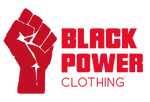Civil Rights T-shirts
Convey a powerful message of solidarity and equality of the Black American with the civil right t-shirts!
This collection is for those who believe in the struggle of Martin Luther King Jr. and a better future for the black community.
Reconstruction saw black American men vote for the first time. Black people attempted to gain better-paying jobs and seek a social life that was more equal. Despite these gains, black Americans did not have equality. Many of the equalities granted in theory, such as voting rights, were quickly taken away again in practice.
- Many black people living in the Northern States faced informal methods of racial discrimination, while the Southern States passed laws called 'black codes,' which tried to keep black people working as farmers or servants for little pay.
- In the Southern States, local governments passed laws preventing black people from using white public facilities such as schools and parks. These were called 'Jim Crow' laws.
- The Ku Klux Klan was established in the Southern states after the American Civil War. The KKK aimed to promote 'white supremacy' by intimidating, attacking, and lynching black people.
- The Fourteenth Amendment to the U.S. constitution granted newly freed enslaved people equal citizenship to white people. However, in the 1896 Plessy v. Ferguson decision, the Supreme Court ruled that racially segregated facilities if 'separate but equal' did not violate the constitution. This was called segregation, and in reality, black people's facilities were almost always worse than those of white people.
- The Fifteenth Amendment to the Constitution established that neither race nor slavery could prevent black people from voting. However, state leaders used poll taxes and created impossible- to- pass literacy tests to limit the ability of African Americans to vote.
- Through a system called 'convict lease,' black Americans serving prison terms, sometimes for trivial or unproven crimes, were forced to work against their will and without pay.
However, despite these laws, black Americans did not achieve economic equality. Although there has been significant progress since the Civil Rights Movement, black Americans still remain a socially disadvantaged group.
Until 1954, racial segregation in education was not only legal but was required in seventeen states and permissible in several others. Utilizing evidence provided in sociological studies conducted by Kenneth Clark and Gunnar Myrdal, however, Thurgood Marshall, then chief counsel for the NAACP, successfully argued the landmark case Brown v. Board of Education of Topeka, Kansas before the U.S. Supreme Court led by Chief Justice Earl Warren. Marshall showed that the practice of segregation in public schools made African American students feel inferior. Even if the facilities provided were equal in nature, the Court noted in its decision, the very fact that some students were separated from others on the basis of their race made segregation unconstitutional.
The Civil Rights Movement was another phase of black political protest, rather than something entirely new in the history of the United States, which is why the Civil Rights Movement is sometimes called 'The Second Reconstruction.' Today many consider the Civil Rights Movement to have been led by Martin Luther King Jr, but key events make clear that it was the actions of everyday people - men, women, and children - that helped make the movement successful:
- In 1954, Rev Oliver Brown won the right to send his child to a white school.
- In the landmark Brown v Board of Education case, the Supreme Court finally ruled that segregation could not ever be equal.
- In 1955, Rosa Parks refused to give up her bus seat to a white person, inspiring the Montgomery Bus Boycott.
- In 1957, nine black students, with military protection, attended a white school in Little Rock, Arkansas.
- In 1963, after campaigns of restaurant sit-ins, 'Freedom Rides' on interstate buses, and civil rights marches – a quarter of a million people marched in the 'March on Washington for Jobs and Freedom' to hear King's 'I Have a Dream' speech.
- In 1966, the Black Panther Party for Self-Defense (BPP) was formed in Oakland, California. Along with Malcolm X, the BPP represented strands of civil rights activism that drew attention to experiences of racial inequality happening in the cities of the north and California. Martin Luther King, until 1968, had largely focused on southern issues.
FAQ
What is Black Power Clothing?
Black Power Clothing is the number one Black Power and Black American clothing brand and we have been fighting against the oppression since our creation in 2014!
When will I get my order?
Orders are sent after 3 to 5 business days by UPS from the USA or England depending on where you order from. Shipping is free everywhere and you will get a tracking link by e-mail as soon as the order is shipped so you can follow it live!
What materials are the hoodies and t-shirts made of?
They all are 100% cotton as it is the perfect fabric to print beautiful graphics, and it makes them as soft and comfortable as possible.
What is your Return and Exchange policy?
Please contact us at contact@blackpower.clothing if there is any problem with your order and we'll do everything to make it right for you!
What payment options are available?
We accept payment through Paypal, you can either pay using your credit card with Paypal platform or use your Paypal balance.








